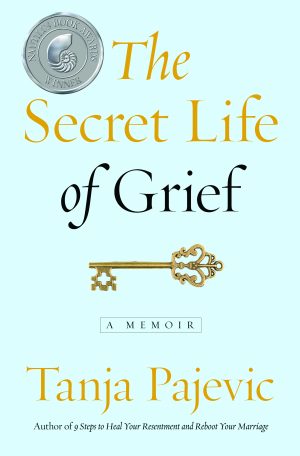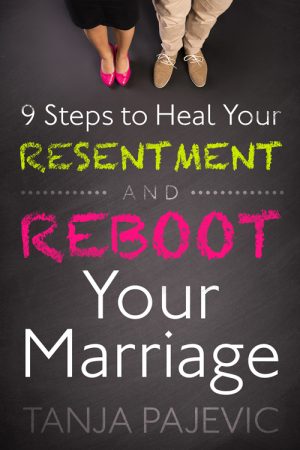In our last post, we discussed whether or not to keep going with your current writing project. Now let’s talk about the logistical pieces involved in getting unstuck and rebooting your writing project. Here are about 15 ways to help you move forward—one compassionate step at a time.
15 Ways to Get Unstuck and Reboot Your Writing Project
- Schedule a set time to restart your project and put it in your planner. If this feels too big, start with 5 or 10 minutes. Treat this as a sacred date with yourself. It is.
- Start with one easy, small goal. Start with 5 minutes if you’re drowning in overwhelm. Use that first writer’s date to pull out your writing and leaf through it, familiarizing yourself with your project. If you’re ready to start with something bigger, start with 15 or 30 minutes. If the number you’ve chosen feels too big, start smaller. Break it down. What’s important here is that you’re starting.
- Create a simple, sacred writing ritual for your writing time. Set up your office, writing desk or kitchen table to create a safe and sacred space. Light a candle, grab a yummy cup of coffee or tea, put on your writing hoodie (thanks for this trick, Beth!)—whatever makes you feel comfortable and safe.
- Ignore your thoughts ABOUT the task you’ve set yourself up to do. Don’t ask yourself if you feel like writing. Just sit down and start.
- Start with whatever section, scene, line, dialogue or thought is easiest.
- Set a timer for your allotted time.
- If you get stuck, ask yourself questions like “What does my reader need to know?” “What’s important to convey in this scene?” “What is my character trying to show me?” If that feels too big, step back and ask yourself why you’re wanting to work on this project. If you’re still stuck, go back to our last post and explore the questions we discussed in that post.
- When the timer goes off, STOP. If you’re still going strong, jot down some notes so you’ll know where to go next. And then STOP. Why is this so important? Because it creates trust around the writing process. It teaches you to trust yourself that you’ll do what you say, including stopping when you say you’ll stop. Again, this helps make the writing process safe.
- When you’re done writing, celebrate your win, no matter how small. Pump your fists in the air, do a happy dance, eat a popsicle, whatever feels fun and enjoyable. The simple action of doing this day-in and day-out (each time you write) rewards as well as trains your brain for success. And what is a book if not a series of small successes, each one built upon the last?
- When you’re done with your writing session, create a closing ritual. You can blow our your candle, turn off your music, close your laptop, Namaste your book or whatever ritual calls to you. What’s important is that it has meaning to you, and that you repeat it every time you write. Again, this trains your brain to know that you’ve a) done your writing, b) received your reward (woo-hoo!) and c) you’re now done and ready to move into the rest of your day. Our mammalian brains don’t like the unknown, and since writing a book is a helluva lot of unknown, we want to make the process as safe as possible. Rituals help.
- Once you’ve done your first writing session, sit down and schedule your next 2-3 writing sessions. If you can, write every day, even if it’s just for a few minutes. This creates consistency and can be a huge help in reducing resistance, the scourge of so many writers. Writing consistently (even if it’s just 2-3 times a week) also shows your creativity (or muse) that you’re serious. When we show up consistently, magic happens.
- If you find that you’re unable to maintain the writing schedule you’ve set up, that’s OK! Course-correcting is another important part of the writing process. What kind of schedule can you realistically maintain with everything else you’ve got going on in your life? Adjust as needed.
- Have realistic expectations, be flexible and start small. Remember: each book starts with a shitty first draft. Expecting perfection on the first draft only sets you up for failure. I’ve seen perfection shut down way too many writers, including myself.
- Keep going! Find an accountability buddy to help you stay on track, join a writing group or check in with friends.
- Hire someone to help you. We hire mechanics to help us fix our cars, professional organizers to help organize our homes, life coaches to help us move past stuck points. Sometimes, we need help with our books.
 And here are my two bonus tips:
And here are my two bonus tips:
- Done is better than perfect. Forreals, people. Do you really want to be that writer who spent 10, 20 or 50 years so tortured by her book that she never let it see the light of day? Me neither.
- Enjoy the process! We learn so much through the process of writing, especially when we’re sharing stories from our own life. It’s truly a transformational process. Don’t rush it.
In the final part of this 3-part series, I’ll talk about timing and trust in regards to writing memoir.
If you missed the first post (Should You Abandon Your Project or Keep Going) in this 3-part series, you can read it here.
In other news:
- I’m working on an “on demand” version of the Jumpstart Your Book virtual retreat. More news about this in the next couple of weeks.
- I’ll also be offering an online memoir course this fall. Stay tuned for details!
- Finally, I wanted to let you know I’m now offering developmental reviews. Want to know what they are and whether or not they’re right for you? Keep reading!
Developmental Reviews
One of the biggest mistakes writers make is waiting until they’re done with their manuscript before hiring an editor. This often leads to major rewrites, increasing the cost, time and emotional investment of your project.
Getting a developmental review early in the process will help you figure out if your story works before you spend precious time and energy polishing your manuscript–saving you lots of frustration, as well as time and money. It’s essential to get big-picture help with narrative style, pacing, structure and technique before you get bogged down in line-edits and final revisions.
If you’d like support with this, I currently have a few openings available for developmental reviews.
What are developmental reviews?
A close read of 10,000 words (approximately 40 pages*) with a comprehensive editorial assessment. We’ll look at how your story holds together as well as address overall story structure, pacing, perspective, tone/voice, showing v. telling, dialogue, narrative style and organization. We’ll cover what’s working, as well as what needs to be strengthened (with specific examples of how to do it), as well as where to go next. (* Double-spaced, 12-pt font.)
What does it cost?
$350
What will you get?
A comprehensive editorial report delivered via email.
If you’re interested in a developmental review of your 10,000 words, please hit reply or contact me at tanja@tanjapajevic.com for availability.
That’s it for today, loves. Hope you have a fabulous week!


